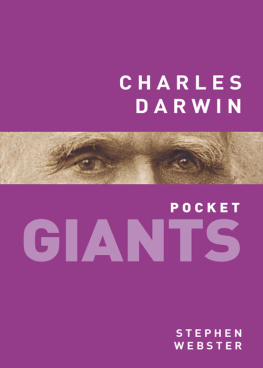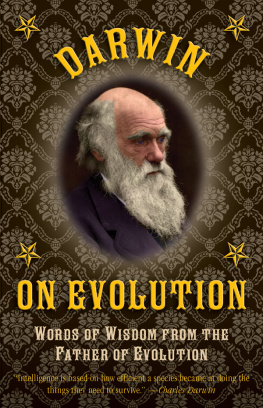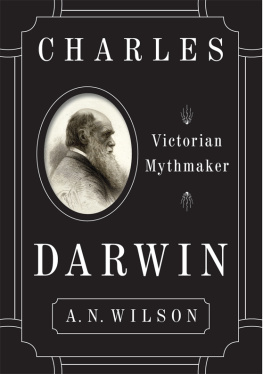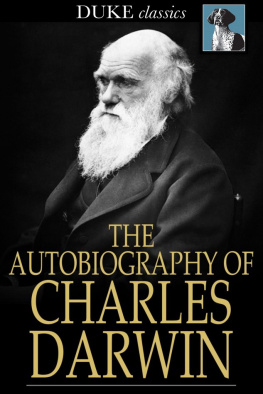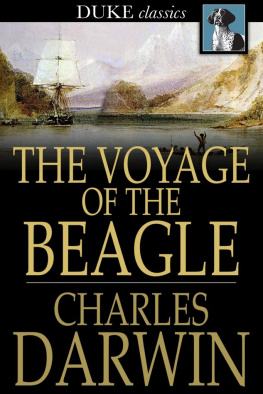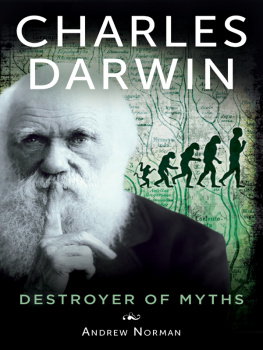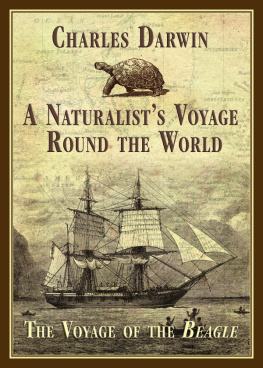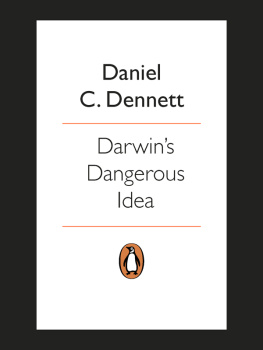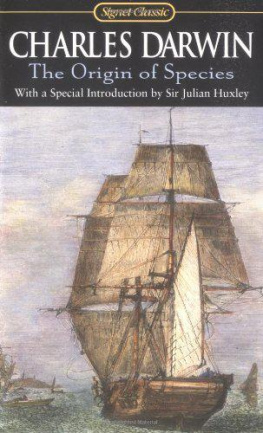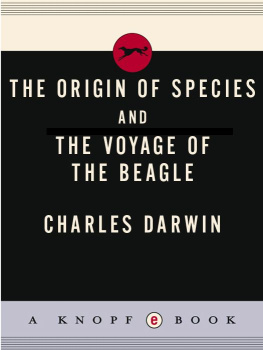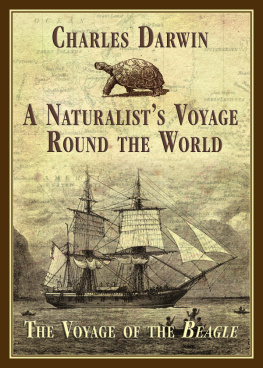Thanks are due to Tony Morris for his constant encouragement. Richard Milner has for many years provided me with wise and humorous insights into nineteenth-century biology and was helpful with the manuscript. Luca Webster applied the unique scrutiny of an 11-year-old to the task of checking the references, while the rest of my family showed a level of patience worthy of Darwin himself.
I think that I am superior to the common run of men in noticing things which easily escape attention, and in observing them carefully. My industry has been nearly as great as it could have been in the observation and collection of facts. What is far more important, my love of natural science has been steady and ardent.
Charles Darwin
Science looks forward: it anticipates rather than remembers. As a result, while the scientific future catches our imagination for its remarkable challenges and potential solutions, the scientific past becomes a hazy landscape, monochrome and flat, and almost never looked at by those who work in a laboratory.
Darwin is different. Darwins name has never faded. When he died in 1882 he was the most celebrated scientist of his day, and he remains a vivid figure whose work still shapes biology and influences the way we know ourselves. His life was a combination of early adventure, of seeing everything, followed by years of contemplation on his favourite scientific problem: the formation of new species. He pursued his ideas with remarkable insight and diligence; Darwin is a giant not simply for the significance of his ideas, but also for the personal qualities he brought to science.
What marks out Darwins imagination? For him there was no flash of genius. He liked to work slowly and methodically on a range of particular but varied scientific problems as various as the origin of coral reefs and the behaviour of bees. A cautious man, he built up intellectual credit over many years, which in turn sustained him as he carefully, almost secretly, moved towards a solution to the problem that preoccupied him above all others.
Darwin had an interesting mix of qualities. He was sensitive to others feelings, yet candid about what he thought of people. He was fearful of causing controversy, yet spent a life drawing up one of sciences most radical theories. He could be lively and sociable, but also reclusive and depressed. It was his great good fortune to be wealthy enough to live as a country squire, enjoying family and work for more than forty years in his rural fastness, Down House. He could pull on his boots and be tramping through the countryside in an instant, a valuable counterpoint to the intensiveness of the study where he wrote his books. His imagination depended on those walks, but he was near enough to London for scientific friends to visit him for enjoyably talkative dinners and weekends. He was prodigiously creative and hard-working, while also hampered by illness for long periods.
Darwin was far from the conventional image of a stern Victorian patriarch. He was a perceptive and loving father: he had ten children, and seven survived childhood. The illnesses that struck his family with fatal effect were devastating to him. More usually, as the children crashed around the house, Darwin absorbed their lively spirit and was a playmate. He never saw himself as impressively academic, and his formal education had a discernible limp. Yet he was always interested in nature and from the beginning flavoured his schooling with his own studies of science. By his late teens, he had expertise in botany, zoology and geology, a serious training in natural history which for years ran alongside his studies of the classics, medicine and divinity.
It was his own programme of learning, not his university degree, that got him a place on the scientific survey ship HMS Beagle for a five-year round-the-world trip. Once aboard, his relaxed and secure temperament helped him thrive in those cramped and stringent ocean-going conditions. He even managed to get on well with Captain FitzRoy, one of the Royal Navys most difficult and intransigent characters.
The Beagle voyage lasted five years, taking him to South America, Australia and all points between. Those years, 1831 to 1836, were the making of Darwin: a raw mix of adventure, physical challenge and exciting intellectual and emotional discovery. It was on the Beagle that he first began to ask about the origin of species, questions that set him on his lifetimes path. And his account of this time, The Beagle Diary, is one of the great descriptions of travel and of youthful endeavour.
Darwin made a name for himself during that trip. People he admired noticed his astute scientific commentaries, which he posted back to England during the voyage. When he eventually returned to London, and began to sort and describe his specimens, he could activate a ready-made network of scientists, roping them in for their expert opinions and for their patronage. Over and above all this, he came home with his own big idea: a vast project in mind, a more-or-less secret urge to explain how life on Earth had changed over time.
Darwin was a pioneer biologist but he didnt work alone. Fourteen thousand letters exist in the archives, and are available online. There is much documentation besides this correspondence. A collector from a young age, he was always meticulous in his record keeping his household accounts are preserved, for example, as are his books, with all their revealing marginalia. The archive of Darwiniana is vast. It is the reason we know so much about the way he lived and worked. And it is an archive which proves that science cannot be split from personality, or from society.
Darwin groaned when he wrote his books, and there are vivid descriptions of his toils. But on the Beagle voyage, with so many ideas pressing in, writing became an important part of his life. He could not draw well and photography did not exist yet. FitzRoy and Darwin discussed their ideas about science, but their conversations were sometimes fraught, for it turned out that Captain FitzRoys political views included a tolerance of slavery, a practice Darwin and his parents had always abhorred. He took to writing down his ideas, and his intellectual development can be traced in the filling of notebook after notebook, the compilation of his great journal and in letters that might take days to write and six months to reach home. The climax of this endeavour was his book On the Origin of Species (known here simply as The Origin), published suddenly in 1859 after two decades of gestation and hesitation. Already a renowned scientist before the book was issued, The Origin was of such wide interest to society that Darwin quite quickly became world famous.
What was the significance of The Origin?
First, it launched biology as a modern science. Before it, there was no agreed-upon explanation for how new species were formed. Darwin changed that. He showed how something admittedly marvellous and enchanting the way organisms fit their environment so beautifully needs no supernatural creator, but can be explained by ordinary biological processes.
Second, The Origin put human beings into the frame of nature. No longer were people self-evidently separate from the natural world; the suggestion now was that they had emerged from that world through evolution and still bore its imprint. When Darwin published his great work in 1859 he was not confident enough to talk about human evolution, so he put his energy into arguing that modern species descended from ancient ones we see in the fossil record. That, he felt, was ambitious enough: the transmutation of species (the word evolution gained its modern meaning later in the nineteenth century) was a highly controversial concept. He could not, however, resist making a brief comment right at the end of his book: Light will be thrown on the origin of man and his history. No one could miss the point. Darwin argued with unassailable precision and steadfastness that modern organisms are similar to extinct forms in the fossil record because one was descended from the other. He called it descent with modification; we all know it as evolution. If this was convincing for plants and animals and Darwin took twenty-three years to make sure he got it right it was hard to see why humans should be any different.

